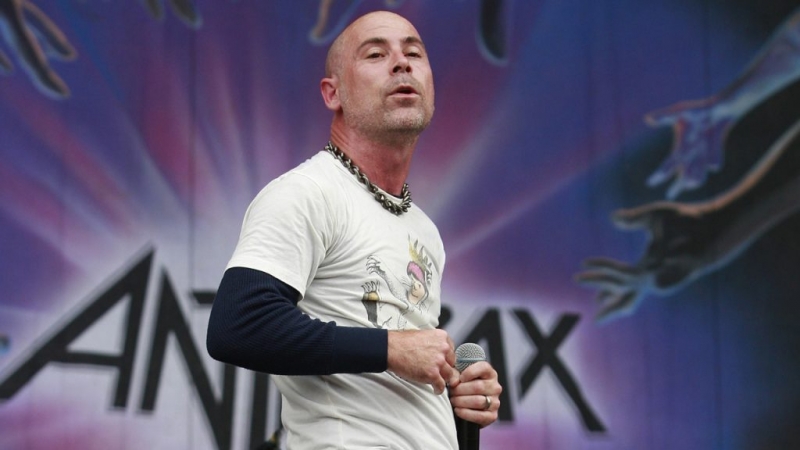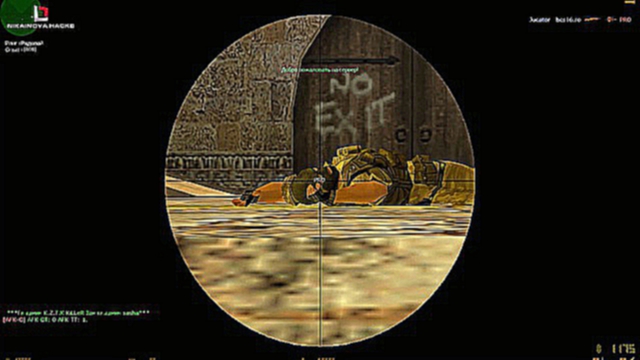Metal Gear Rising Revengeance - Return to Ashes Platinum Mix-Low Key Version
Zeitgeist: The Movie & Venus Project. ZeitgeistMovie. The Zeitgeist Movement
A review in The Irish Times entitled “Zeitgeist: the Nonsense” wrote that “these are surreal perversions of genuine issues and debates, and they tarnish all criticism of faith, the Bush administration and globalization—there are more than enough factual injustices in this world to be going around without having to invent fictional ones."[19] Skeptic magazine's Tim Callahan criticizes the first part of the film on the origins of Christianity:
Some of what it asserts is true. Unfortunately, this material is liberally—and sloppily—mixed with material that is only partially true and much that is plainly and simply bogus. […] Zeitgeist is The Da Vinci Code on steroids.[20]
Other reviews assert that it is "conspiracy crap",[21] “based solely on anecdotal evidence” and “fiction couched in a few facts”,[22] or disparaging reference is made to its part in the 9/11 truth movement.[7]
Filmmaker Dmitri Bushny, writing in the Russian weekly Literaturnaya Gazeta, was a rare voice in the mainstream press in praising the film, saying that it "utterly destroyed the official version" of the September 11 attacks. Acknowledging widespread criticism of part 2 as "internet nonsense", he defended the film for raising questions about the attacks, arguing that "there is no distortion in putting forward rational questions and trying to answer them. This is done persuasively, and no perception of underhand shuffling or manipulation arises."[23]
Some journalists have focused on it as an example of how conspiracy theories are propagated in the internet age. For example, Ivor Tossell in the Globe and Mail argued that contradictions in the film are overwhelmed by passion and effective use of video editing:
The film is an interesting object lesson on how conspiracy theories get to be so popular... It's a driven, if uneven, piece of propaganda, a marvel of tight editing and fuzzy thinking. Its on-camera sources are mostly conspiracy theorists, co-mingled with selective eyewitness accounts, drawn from archival footage and often taken out of context. It derides the media as a pawn of the International Bankers, but produces media reports for credibility when convenient. The film ignores expert opinion, except the handful of experts who agree with it. And yet, it's compelling. It shamelessly ploughs forward, connecting dots with an earnest certainty that makes you want to give it an A for effort.[24]
Filipe Feio, reflecting upon the film's internet popularity in Diário de Notícias, stated that "Fiction or not, Zeitgeist, The Movie threatens to become the champion of conspiracy theories of today."[25]
Scholarly responses
Michael Shermer, founder of the Skeptics Society, mentioned Zeitgeist in an article in Scientific American on skepticism in the age of mass media, and the postmodern belief in the relativism of truth. He argues that this belief, coupled with a "clicker culture of mass media," results in a multitude of various truth claims packaged in "infotainment units", such as Zeitgeist, Loose Change, Poltergeist, or The Twilight Zone.[26]
Jane Chapman, a film producer and reader in media studies at the University of Lincoln, called Zeitgeist "a fast-paced assemblage of agitprop", an example of unethical film-making.[27] She accuses Joseph of deceit through the use of unreferenced and undated assertions, and standard film-making propaganda techniques. While parts of the film are, she says, "comically" self-defeating, the nature of “twisted evidence” and use of Madrid bomb footage to imply it is of the London bombings she approvingly cites a student journalist who calls it an "out and out lie" amount to ethical abuse in sourcing in later versions of the movie, a subtitle is added to this footage identifying it as from the Madrid bombings. She finishes her analysis with the comment:
Thus legitimate questions about what happened on 9/11, and about corruption in religious and financial organizations, are all undermined by the film’s determined effort to maximize an emotional response at the *** of reasoned argument.
Chris Forbes, Senior lecturer in Ancient History of Macquarie University and member of the Synod of the Diocese of Sydney, severely criticized Part I of the movie, asserting that it has no basis in serious scholarship or ancient sources, and that it relies on amateur sources that recycle frivolous ideas from one another, rather than serious academic sources, commenting, "It is extraordinary how many claims it makes which are simply not true."[28]
Examining some of the specific claims made by the film, Forbes points out that while there are parallels between the story of Jesus and many ancient mythological figures, many of the ones mentioned in the film are false, as are other aspects of the film's description of these myths. Forbes states that there is no evidence in Egyptian sources that Horus' mother Isis was a virgin, and says that Ra was the Egyptian god of the sun, not Horus. Similarly, neither Krishna nor Dionysus nor Attis were ever said to be born of virgins, as Krishna was the eighth child of his parents, Devaki and Vasudeva, and Dionysus' mother, Semele, had slept with Zeus. Forbes asserts that Horus was not adored by three kings, and that neither he nor Attis were crucified nor resurrected. Forbes and interviewer John Dickson, founder of the Centre for Public Christianity, took issue with what they perceived as an argument centered on the homophony between the words "Sun" and "Son" in regards to Jesus, with Forbes dismissing this point as a pun, and pointing out that those words are not homophonic in ancient Egyptian, Latin or Greek. Forbes also points out that neither Horus, Attis nor Jesus were born on December 25, as the ancient Egyptian calendar did not include the month of December found in the Latin calendar, and that the date of Christmas is a celebratory tradition historically derived from Sol Invictus and Saturnalia, rather than the Bible.[28]
Forbes also criticizes the movie's use of Roman sources to suggest that Jesus did not exist, noting that the list of supposed contemporaneous historians alleged by the film to have not mentioned Jesus is actually a list of geographers, literature professors, poets, philosophers and writers on farming or gardening, who would not be expected to mention him, and that the modern sources cited in the film are either experts in fields other than ancient history, such as German literature, or uncredentialed amateur Egyptologists. Forbes challenges the film's allegation that Josephus' mention of Jesus was doctored by pointing out that Josephus actually mentions Jesus twice, and that only one of these mentions is believed by scholars to have been doctored in the Middle Ages, in order to change an already existing mention of him see Testimonium Flavianum. Forbes also argues that while Emperor Constantine I legalized Christianity, it was Theodosius I who made it compulsory later in the 4th century, and that contrary to the film's thesis, Constantine did not invent the historical Jesus, as early records show that his historicity was already a key element of early Christianity prior to Constantine's conversion to it.[28]
:_The_Movie - John Bush Metal Gear Rising Revengeance - Return to Ashes Platinum Mix-Low Key Version
Скачать быстроРазмер файла - 5.14 MB
Прочая музыка из игры
A review in The Irish Times entitled “Zeitgeist: the Nonsense” wrote that “these are surreal perversions of genuine issues and debates, and they tarnish all criticism of faith, the Bush administration and globalization—there are more than enough factual injustices in this world to be going around without having to invent fictional ones."[19] Skeptic magazine's Tim Callahan criticizes the first part of the film on the origins of Christianity:
Some of what it asserts is true. Unfortunately, this material is liberally—and sloppily—mixed with material that is only partially true and much that is plainly and simply bogus. […] Zeitgeist is The Da Vinci Code on steroids.[20]
Other reviews assert that it is "conspiracy crap",[21] “based solely on anecdotal evidence” and “fiction couched in a few facts”,[22] or disparaging reference is made to its part in the 9/11 truth movement.[7]
Filmmaker Dmitri Bushny, writing in the Russian weekly Literaturnaya Gazeta, was a rare voice in the mainstream press in praising the film, saying that it "utterly destroyed the official version" of the September 11 attacks. Acknowledging widespread criticism of part 2 as "internet nonsense", he defended the film for raising questions about the attacks, arguing that "there is no distortion in putting forward rational questions and trying to answer them. This is done persuasively, and no perception of underhand shuffling or manipulation arises."[23]
Some journalists have focused on it as an example of how conspiracy theories are propagated in the internet age. For example, Ivor Tossell in the Globe and Mail argued that contradictions in the film are overwhelmed by passion and effective use of video editing:
The film is an interesting object lesson on how conspiracy theories get to be so popular... It's a driven, if uneven, piece of propaganda, a marvel of tight editing and fuzzy thinking. Its on-camera sources are mostly conspiracy theorists, co-mingled with selective eyewitness accounts, drawn from archival footage and often taken out of context. It derides the media as a pawn of the International Bankers, but produces media reports for credibility when convenient. The film ignores expert opinion, except the handful of experts who agree with it. And yet, it's compelling. It shamelessly ploughs forward, connecting dots with an earnest certainty that makes you want to give it an A for effort.[24]
Filipe Feio, reflecting upon the film's internet popularity in Diário de Notícias, stated that "Fiction or not, Zeitgeist, The Movie threatens to become the champion of conspiracy theories of today."[25]
Scholarly responses
Michael Shermer, founder of the Skeptics Society, mentioned Zeitgeist in an article in Scientific American on skepticism in the age of mass media, and the postmodern belief in the relativism of truth. He argues that this belief, coupled with a "clicker culture of mass media," results in a multitude of various truth claims packaged in "infotainment units", such as Zeitgeist, Loose Change, Poltergeist, or The Twilight Zone.[26]
Jane Chapman, a film producer and reader in media studies at the University of Lincoln, called Zeitgeist "a fast-paced assemblage of agitprop", an example of unethical film-making.[27] She accuses Joseph of deceit through the use of unreferenced and undated assertions, and standard film-making propaganda techniques. While parts of the film are, she says, "comically" self-defeating, the nature of “twisted evidence” and use of Madrid bomb footage to imply it is of the London bombings she approvingly cites a student journalist who calls it an "out and out lie" amount to ethical abuse in sourcing in later versions of the movie, a subtitle is added to this footage identifying it as from the Madrid bombings. She finishes her analysis with the comment:
Thus legitimate questions about what happened on 9/11, and about corruption in religious and financial organizations, are all undermined by the film’s determined effort to maximize an emotional response at the *** of reasoned argument.
Chris Forbes, Senior lecturer in Ancient History of Macquarie University and member of the Synod of the Diocese of Sydney, severely criticized Part I of the movie, asserting that it has no basis in serious scholarship or ancient sources, and that it relies on amateur sources that recycle frivolous ideas from one another, rather than serious academic sources, commenting, "It is extraordinary how many claims it makes which are simply not true."[28]
Examining some of the specific claims made by the film, Forbes points out that while there are parallels between the story of Jesus and many ancient mythological figures, many of the ones mentioned in the film are false, as are other aspects of the film's description of these myths. Forbes states that there is no evidence in Egyptian sources that Horus' mother Isis was a virgin, and says that Ra was the Egyptian god of the sun, not Horus. Similarly, neither Krishna nor Dionysus nor Attis were ever said to be born of virgins, as Krishna was the eighth child of his parents, Devaki and Vasudeva, and Dionysus' mother, Semele, had slept with Zeus. Forbes asserts that Horus was not adored by three kings, and that neither he nor Attis were crucified nor resurrected. Forbes and interviewer John Dickson, founder of the Centre for Public Christianity, took issue with what they perceived as an argument centered on the homophony between the words "Sun" and "Son" in regards to Jesus, with Forbes dismissing this point as a pun, and pointing out that those words are not homophonic in ancient Egyptian, Latin or Greek. Forbes also points out that neither Horus, Attis nor Jesus were born on December 25, as the ancient Egyptian calendar did not include the month of December found in the Latin calendar, and that the date of Christmas is a celebratory tradition historically derived from Sol Invictus and Saturnalia, rather than the Bible.[28]
Forbes also criticizes the movie's use of Roman sources to suggest that Jesus did not exist, noting that the list of supposed contemporaneous historians alleged by the film to have not mentioned Jesus is actually a list of geographers, literature professors, poets, philosophers and writers on farming or gardening, who would not be expected to mention him, and that the modern sources cited in the film are either experts in fields other than ancient history, such as German literature, or uncredentialed amateur Egyptologists. Forbes challenges the film's allegation that Josephus' mention of Jesus was doctored by pointing out that Josephus actually mentions Jesus twice, and that only one of these mentions is believed by scholars to have been doctored in the Middle Ages, in order to change an already existing mention of him see Testimonium Flavianum. Forbes also argues that while Emperor Constantine I legalized Christianity, it was Theodosius I who made it compulsory later in the 4th century, and that contrary to the film's thesis, Constantine did not invent the historical Jesus, as early records show that his historicity was already a key element of early Christianity prior to Constantine's conversion to it.[28]
:_The_Movie - John Bush Metal Gear Rising Revengeance - Return to Ashes Platinum Mix-Low Key Version
Zeitgeist: The Movie & Venus Project. ZeitgeistMovie. The Zeitgeist Movement
Все комментарии на сайте (0)
Поделиться мнением
Случайная музыка из игр
Рекомендуемые ролики
Новые ролики
Популярная музыка из игр
Сейчас слушают
Самые популярные игры

![streemmedia - АУДИО АФИША [Октябрь - Новый Человек Паук 2] Дикт. Кабал](/uploads/images/s/t/r/streemmedia_1.jpg)









![Mania - Мой город [Женский Рэп Портал]](/uploads/images/1/_/m/1_mania_moj_gorod_zhenskij_rep_portal.jpg)
![Nephilim - Второй сын [C2 prod.]](/uploads/images/n/e/p/nephilim_vtoroj_sin_c2_prod.jpg)




